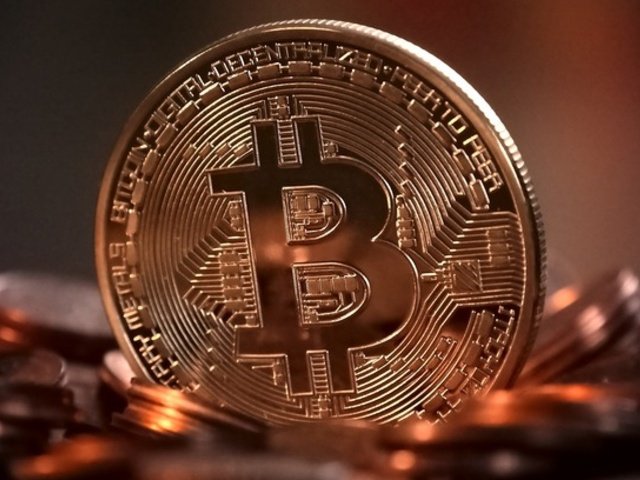Oct 3, 2025
The Future of Transactions Understanding BTC Payment Processors

In the ever-evolving landscape of digital finance, the emergence of BTC Payment Processor has marked a significant milestone. The ability to send and receive payments using Bitcoin, the pioneering cryptocurrency, has transformed the way businesses and consumers engage in economic activities. This article delves into what BTC payment processors are, how they work, their impact on the market, and why they are becoming essential for businesses in the digital age.
What is a BTC Payment Processor?
A BTC payment processor is a service that allows businesses to accept Bitcoin as a form of payment. These processors facilitate transactions by converting Bitcoin payments into the local currency or holding them in Bitcoin, depending on the merchant’s preferences. The role of payment processors is critical, as they provide the necessary tools and infrastructure for effectively handling cryptocurrency transactions, ensuring security, speed, and reliability.
How Do BTC Payment Processors Work?
BTC payment processors operate on a straightforward principle. When a customer makes a purchase using Bitcoin, the processor converts the cryptocurrency amount into fiat currency (like USD or EUR) at the current market rate if the merchant opts for immediate conversion. This conversion protects the merchant from Bitcoin’s price volatility, ensuring they receive a stable amount regardless of fluctuations in cryptocurrency value.
Here’s a step-by-step breakdown of how a typical transaction takes place:
- Customer Initiates Payment: The customer selects Bitcoin as their payment option at checkout.
- QR Code Generation: The payment processor generates a QR code that contains the merchant’s Bitcoin wallet address and the transaction amount.
- Customer Scans QR Code: The customer uses their Bitcoin wallet app to scan the QR code and confirm the payment.
- Transaction Confirmation: The payment processor monitors the blockchain for confirmations of the transaction. Once confirmed, it notifies the merchant.
- Settlement: Depending on the processor’s settings, the merchant can either receive Bitcoin directly or have the amount converted to fiat currency.
Benefits of Using BTC Payment Processors
The integration of BTC payment processors into business operations offers numerous benefits that can enhance customer experience and improve cash flow. Some of the primary advantages include:

- Lower Transaction Fees: Compared to traditional payment methods, Bitcoin transactions generally incur lower fees, especially for international payments. This can result in significant savings for businesses.
- Faster Transactions: Bitcoin transactions can be processed almost instantly, regardless of geographical location. This speed improves cash flow and enhances customer satisfaction.
- 24/7 Availability: Unlike traditional banking systems, Bitcoin operates around the clock. Businesses can accept payments at any time, increasing sales opportunities.
- Access to a New Customer Base: Accepting Bitcoin can attract tech-savvy customers who prefer using cryptocurrency for their purchases, opening up new market segments.
- Enhanced Security: BTC payment processors utilize advanced encryption and blockchain technology, making transactions secure and reducing the risk of chargebacks and fraud.
Types of BTC Payment Processors
Various types of BTC payment processors cater to different business needs. Understanding these options can help businesses choose the right service provider for their operations:
- Hosted Wallet Services: These are beginner-friendly solutions where the payment processor provides a digital wallet for merchants to receive and manage Bitcoin payments. Examples include BitPay and Coinbase Commerce.
- Self-Hosted Solutions: For businesses seeking more control, self-hosted solutions allow them to manage their wallets and directly accept Bitcoin payments without intermediaries.
- Point of Sale (POS) Systems: Some BTC payment processors integrate with existing POS systems, enabling brick-and-mortar stores to accept Bitcoin alongside traditional payment methods.
- API Payment Gateways: For online businesses, API gateways allow seamless integration of Bitcoin payments into their websites or applications, automating the checkout process.
Challenges Faced by BTC Payment Processors
Despite their many advantages, BTC payment processors also face challenges that can impact their operation and adoption. Some of these challenges include:
- Price Volatility: The price of Bitcoin can fluctuate significantly, which can create uncertainty for merchants when pricing products and managing cash flow.
- Regulatory Issues: The regulatory landscape for cryptocurrencies varies greatly by region, and businesses may face legal challenges related to compliance and taxation.
- Technological Barriers: Some businesses may lack the technical knowledge or infrastructure to implement Bitcoin payment processing effectively.
- Consumer Awareness: While Bitcoin adoption is growing, many consumers are still unfamiliar with how to use it, which can limit the potential customer base for businesses that accept it.
The Future of BTC Payment Processing
As the cryptocurrency landscape continues to mature, the future of BTC payment processing looks promising. Innovations such as the Lightning Network aim to enhance transaction speed and reduce fees further, making Bitcoin a more practical option for everyday purchases. As more businesses recognize the value of accepting Bitcoin, we can expect the emergence of new tools, services, and regulatory frameworks that will foster adoption and improve the overall user experience.
In conclusion, BTC payment processors have become crucial players in the digital economy, enabling businesses to leverage the benefits of cryptocurrency. By understanding how they work, their advantages, and the challenges they face, businesses can make informed decisions about integrating Bitcoin payments into their operations. As we move toward a more digitized financial landscape, the role of BTC payment processors will undoubtedly expand, shaping the future of transactions for years to come.
More Details